From the arboretum to Franklin Street, these spaces are peaceful, beautiful and Tar Heel-approved.
For this edition of our annual study spot list, we added a twist: Six UNC-Chapel Hill seniors who will turn their tassels at Spring Commencement on May 11 shared their favorite study locations — outdoors to celebrate spring on Carolina’s campus — and a piece of advice for the incoming class of ‘28.
Read on to hear which study spots our seniors recommend.
Coker Arboretum
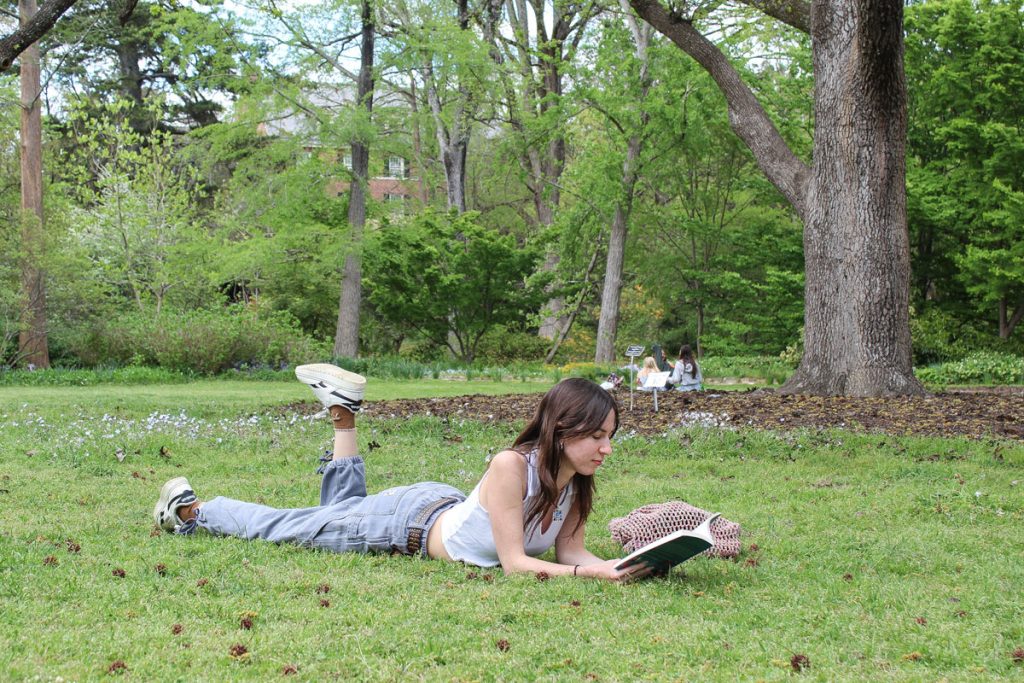
Beloved by many, Coker Arboretum is a sprawling 5-acre green space run by the North Carolina Botanical Garden. Benches along the paths and open clearings offer places to sit and study. This location is a favorite of Naomi Ovrutsky, who will graduate with a B.S. in physics and a minor in creative writing.
“I like that it’s a bit isolated from campus so that it doesn’t feel like I’m in class or next to class. It’s a nice break,” Ovrutsky said. “And I love it when flowers bloom. It’s especially a great spot during spring semester.”
Her advice to incoming Carolina students is to “explore your options academically and explore things that you haven’t tried before. I ended up doing a creative writing minor in fiction writing, which I hadn’t done a ton of when I started at UNC, and it was a fun, unexpected journey. Don’t limit yourself.”
Outside Person Hall
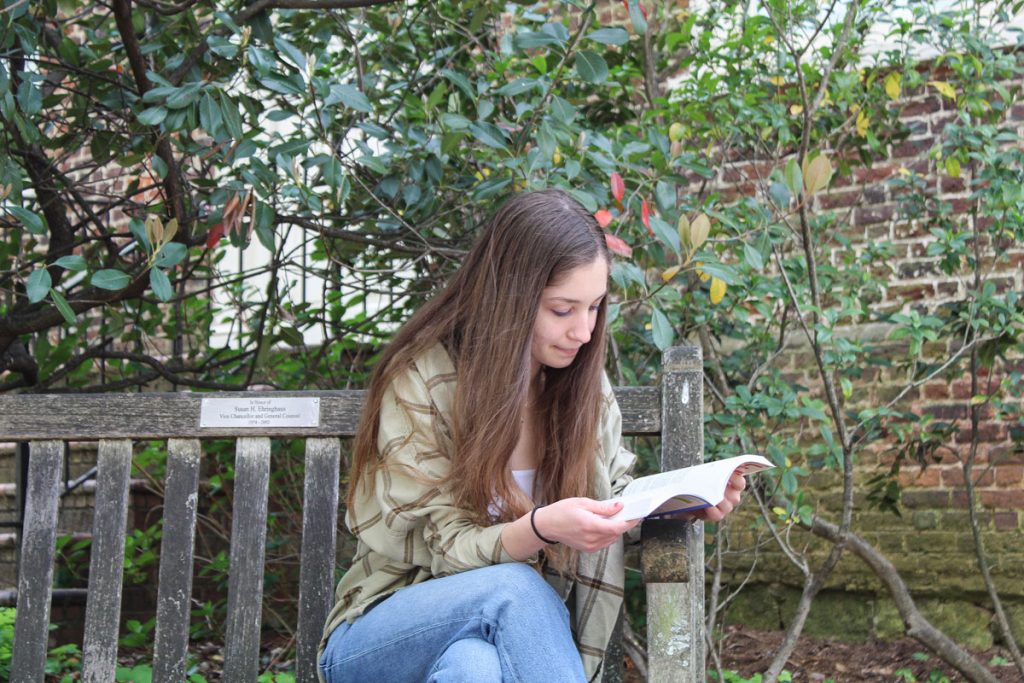
Frances Norton, who will graduate with a B.A. in music as well as English and comparative literature, takes violin lessons in Person Hall. The benches outside the building are convenient for studying between lessons and classes in nearby Hill Hall, home to the department of music.
“I really like sitting here because of all the greenery, and you get a nice view of the quad,” Norton said. “Also, you can sometimes hear the music coming from Person Hall.”
For Norton, “making friends and finding community” were the most daunting aspects of beginning her college career, so her advice to the class of ‘28 is to “go to departmental events or join clubs. Just go to every event you can, and you’ll find things you like, things you don’t like — and you’ll find good community.”
The steps of Manning Hall
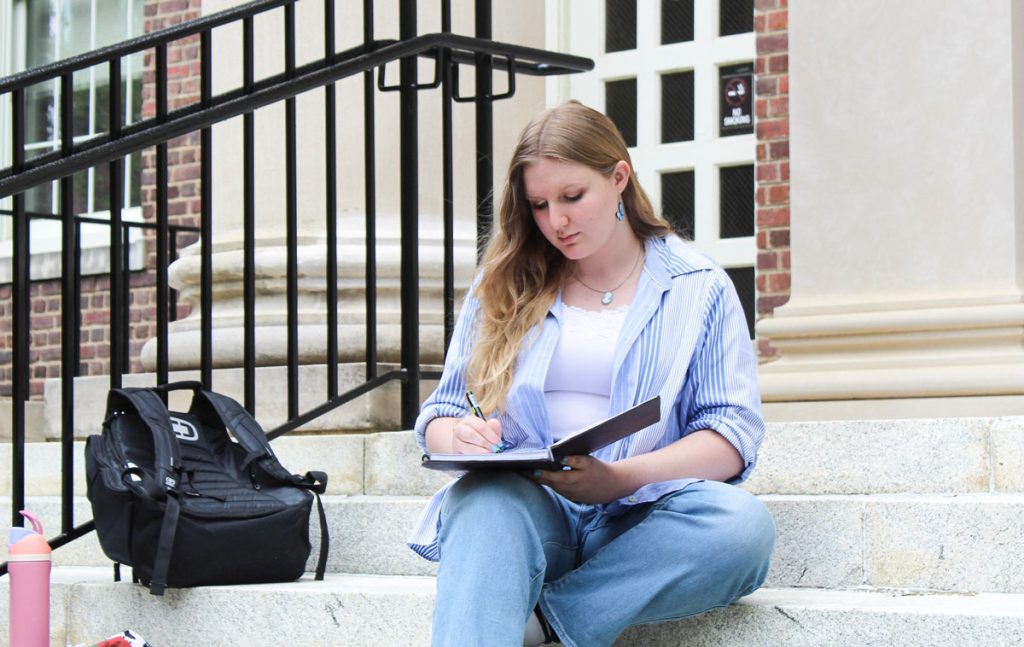
Manning Hall offers a calm study environment near the activity of Polk Place, Lenoir Dining Hall and the Pit. This is the chosen study spot for Emma Gates, who will graduate with a B.S. in environmental sciences and a double minor in geological sciences and studio art.
“I love the outdoors, and the nature on campus is beautiful in all four seasons. When it’s a nice day outside, I just love sitting on the steps: I can people-watch, and it’s so easy to not be on my phone when I’m outside. It really helps me be motivated to do my homework.”
Gates recommends that incoming Carolina students “meet with an academic adviser as soon as you figure out what you want to do” and that they search for an adviser specifically related to their chosen area of study. “You have a little time to decide — maybe by the time you’re a sophomore — but keep it in the back of your mind.”
Outside the Campus Y
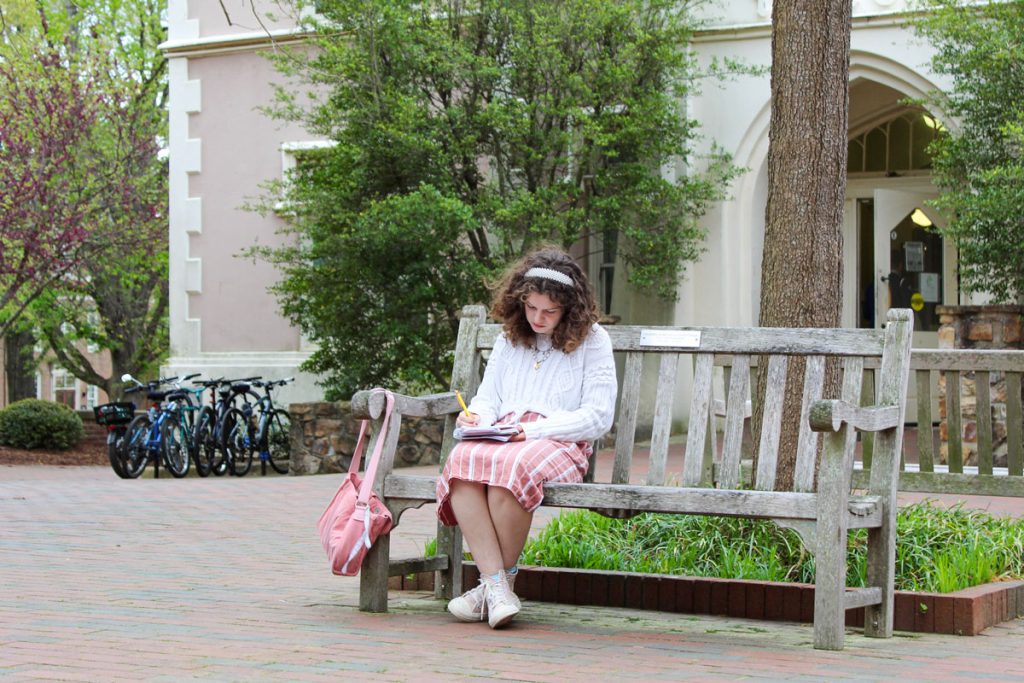
A popular student hangout is the Campus Y, a hub of 32 student-run social justice committees. The benches outside this building are the chosen spot of Maggie Dunn, who will graduate with a B.A. in English and comparative literature and dramatic art as well as an M.A. in teaching and a minor in education from the School of Education.
“There’s a great view and a great atmosphere around here,” said Dunn of her study spot. “The Campus Y provides such a welcoming space, and you’ve got all the perks of the beautiful north campus, including the Old Well. And there’s Meantime Coffee, which is maybe the biggest draw!”
She encourages incoming students to take time for themselves while they adjust to the academic rigor of college. “School is important, but don’t underestimate the power of a night off for your emotional and social well-being. You are worthy of being your own top priority!”
Stone tables at the intersection of East Cameron Avenue and South Columbia Street
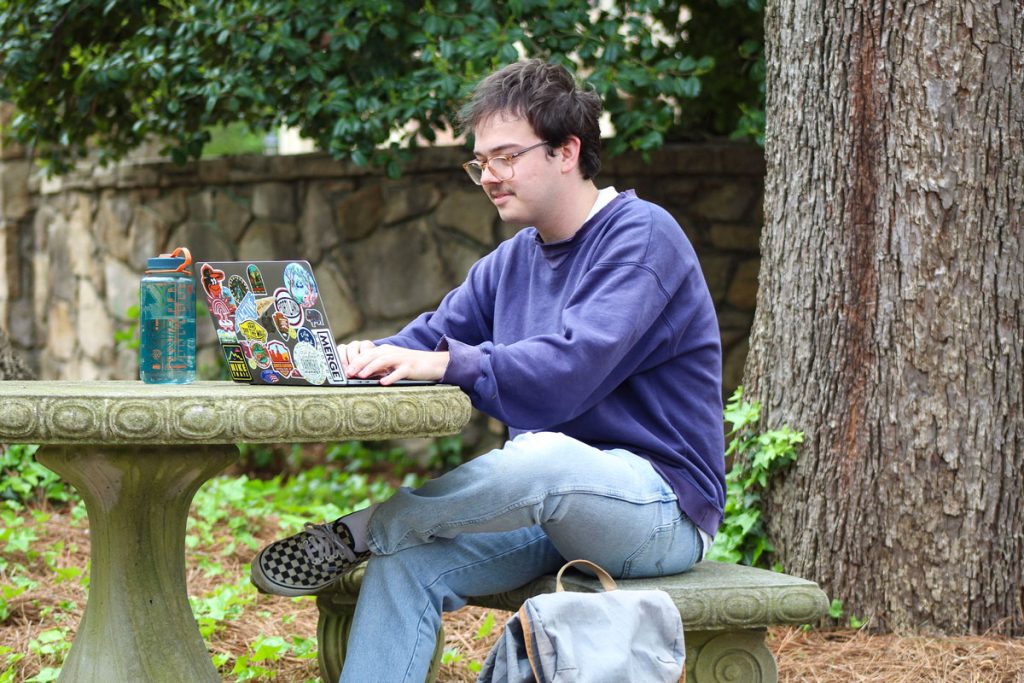
A lesser-known study location is the small cluster of stone tables that sit at the intersection of East Cameron Avenue and South Columbia Street, triangulated between Peabody, Swain and Abernathy Halls. Calvin Mueller, who will graduate with a B.A. in history, found a piece of his first collegiate home here.
“I transferred here from Arizona State University, and I loved working outside there,” Mueller explained. “In particular, there was one area with very similar hedges and tables as these stone tables, so this area kind of reminds me of that, and it helped me get more adjusted to life here.”
Mueller reminds incoming students about one of their greatest assets at Carolina: the faculty.
“Don’t be afraid to talk to your professors, especially if you’re really interested in a certain topic or class,” he said. “They’re nerds too, and they would love to talk to you! Some of my favorite moments from college are talking to professors about topics that I really enjoy.”
Outside Carolina Coffee Shop
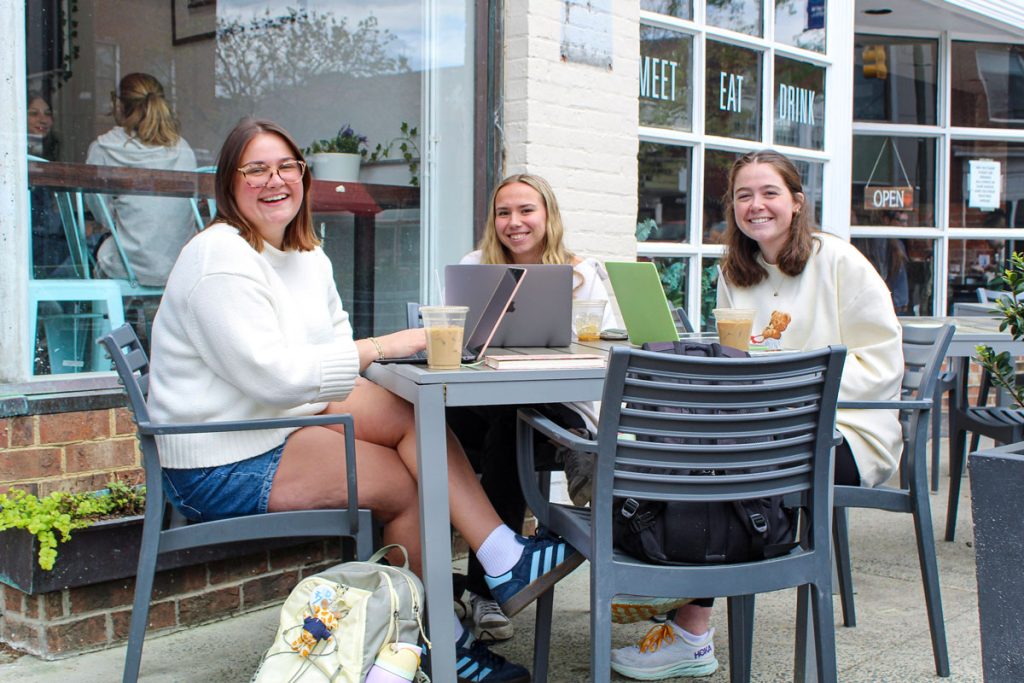
For students who prefer to study on Franklin Street, seating outside of Carolina Coffee Shop and its sister location, 1922, are a perfect choice. Carolina Coffee Shop is the oldest continually running restaurant in North Carolina, so it offers a piece of history in addition to a selection of tasty drinks and food.
Lizabeth Bamgboye, a Schwarzman scholar who will graduate with a B.A. in global studies and political science and a minor in creative writing, recommends it as “a great spot, unless you get distracted easily.”
Bamgboye rounds out the advice for the Class of ’28 with a holistic look at her own Carolina experience: “I was able to ground myself in my academic pursuits by finding ways to connect my intellectual interests with community service and engaging with other perspectives outside of academia that could enrich my contextual understanding of my areas of study.”
Some specific tips for her well-rounded approach to a college career? “Travel! Volunteer! Get a part-time job! Get to know your neighbors if you live off campus! There are many ways of knowing and learning, and all of them can enrich your undergraduate study.”
By Andy Little ‘24
